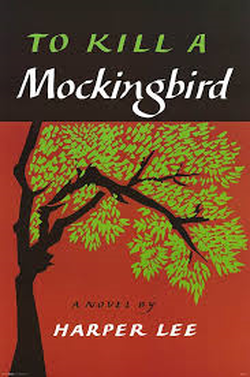 Recently I saw an American Masters special on PBS about Harper Lee, the author of the classic children's novel To Kill a Mockingbird. Like most people, I've always loved the novel and considered it to be "perfect" books that have such depth and wisdom while still being entertaining to read. So, I was a bit startled to find out while watching the biography that this novel didn't flow easily from Lee's pen. She wrote it over a long period of time, and even after a year of dedicated work, quitting her job to devote all her time on it, the book was still not fully formed or publishable. Thankfully, agent Maurice Crain saw magic in her words and concept. Not many agents these days would take on a never published author whose work showed promise but was far from complete. I find that agents at writing conferences are always talking about how they enjoy helping authors mold their pieces, but the guidelines at their websites make it clear that they want books that are as close to publishable as possible. At any rate, Crain accepted her novel and sold it under the working titled of Atticus to editor Tay Hohoff at J. B. Lippencott publishers in New York. Hohoff said that the book was really a collection of short stories when he accepted it. "There were dangling threads of plot, there was a lack of unity - a beginning, a middle, an end that was inherent in the beginning," he remembered in an interview. He also said, "The editorial call to duty was plain." Again, I marvel at the fact that a publisher, knowing the book needed substantial work, took the project on and had faith it would turn out right in the end. With Hohoff's guidance, Harper Lee rewrote her novel three and half times and gave it the new now-famous title before it was ready to publish. It has been conjectured that one of the reasons Harper Lee didn't release a second novel until decades later is due to the fact that Hohoff retired and her agent, Maurice Crain, passed away. She was very reliant upon their help. This quote from Louisa Thomas of Newsweek in her article "Who Helped Harper Lee With Mockingbird?" sums it up: "We like to think of writers, like heroes, as isolated beings. To an extent, it's true; writing is often lonely and painful, a confrontation between the self and the blankness of the page. But a book is also shaped by the system of editors, agents, publishers, teachers, and readers." So, remember as you struggle with your drafts: even the great authors have to revise. Comments are closed.
|
D. G. DriverAward-winning author of books for teen and tween readers. Learn more about her and her writing at www.dgdriver.com Archives
July 2024
Categories
All
|
Author D. G. Driver's
Write and Rewrite Blog
“There are no bad stories, just ones that haven’t found their right words yet.”
A blog mostly about the process of revision with occasional guest posts, book reviews, and posts related to my books.

 RSS Feed
RSS Feed